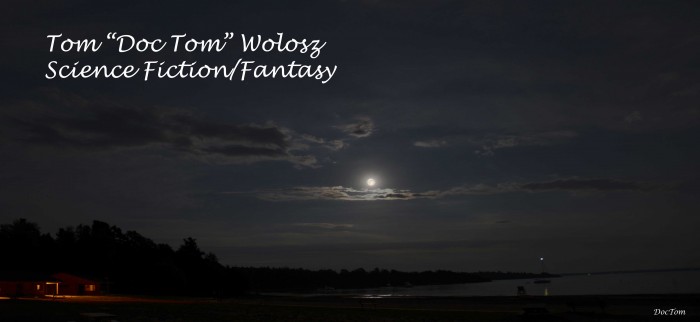I’m following up on two previous posts – Great Books and Originality – because the two often flow together, and I thought I’d point out a few examples from the world of Scifi.
I recently read through the two volume set from the Library of America, “American Science Fiction.” The editors picked out nine “classic” novels from 1953 through 1958, some of which illustrate the points I’ve been trying to make. I might also point out that in my younger days I was deeply embroiled in reading everything Edgar Rice Burroughs wrote along with the works of Asimov, Clarke, etc. (all great reads) but probably would not have gotten through some of these “classics” – oh, the fickleness of youth!
Anyway, let me start with the novel that most struck me – “The Space Merchants” by Frederik Pohl and C.M.Kornbluth. The main character is an advertising executive (no, this is not “Mad Men” in space suits) who is in charge of a campaign to lure settlers to Venus, a rather dreary, not to mention dangerous, place (remember, this was written in 1953). The story does have its intrigue, and action, but what struck me the most about it is the authors’ vision of a future world dominated by advertising firms and corporations. There are no Senators from states, they all represent the major firms (e.g., the Senator from GM). Subliminal advertising is standard procedure (there is no regulation of anything) as is the use of secret chemicals in various food products to addict consumers to the use of those products. This is all wallpaper – the set the story plays out on – and the story itself is, as I’ve said, a somewhat typical adventure, but written in the 1950s it was a projection of a world that could happen. Because of the emphasis on adventure, and, of course, a happy ending for the main character, (both necessary to sell scifi in the 50s) it’s not up there with Huxley’s “Brave New World” or Orwell’s “1984”, but considering we now have politicians and the Supreme Court running around proclaiming corporations “people” it does come in as prescient. Original? Hell, yes! Did they start out to write a “great book” – doubtful. Did they? Maybe.
I also found “The Long Tomorrow” by Leigh Brackett (1955) very interesting. In a post nuclear war America civilization has reverted to a small village, Mennonite-like lifestyle and religious belief. Cities and technology are banned – looked upon as tools of the devil that led the world to destruction. A story about rebellious youth (main character) and his search for what he thinks will be a better world, the story carries you along. But again, what I found most interesting was the unique world Brackett created. The anti-science ethos of this place struck me as a model (exaggerated greatly of course) of the recent anti-science currents in the US. When ideology or religion trumps science I think we all need to look out. Overall, as a writer I really appreciated the way Brackett took her interest in Mennonite culture and used it to come up with a well thought out and very unique book.
The pattern in both of these books is the same – look at our modern culture, pick out one aspect that fascinates you (or maybe just looks ripe for satire) and play the “What if” game. In both cases the “What if” creates the set your actors will play on. It’s then up to you to write the script.
